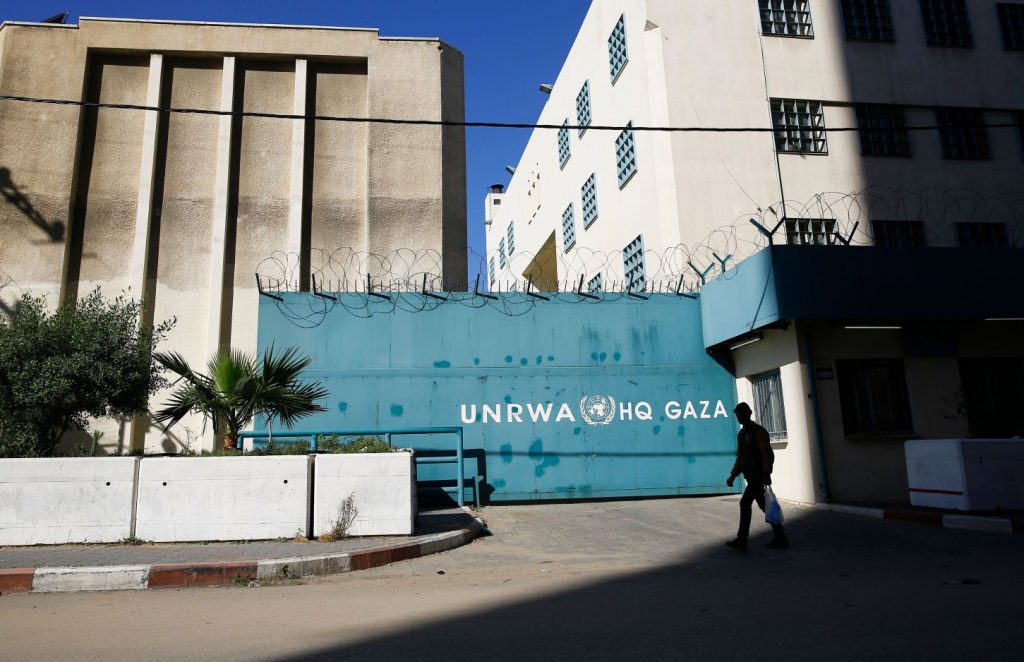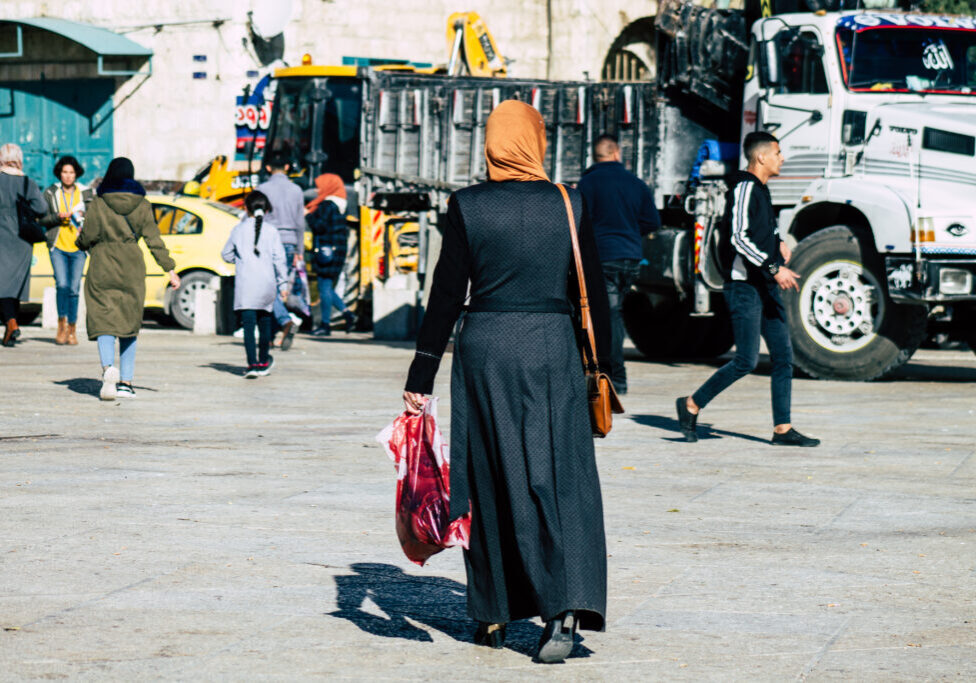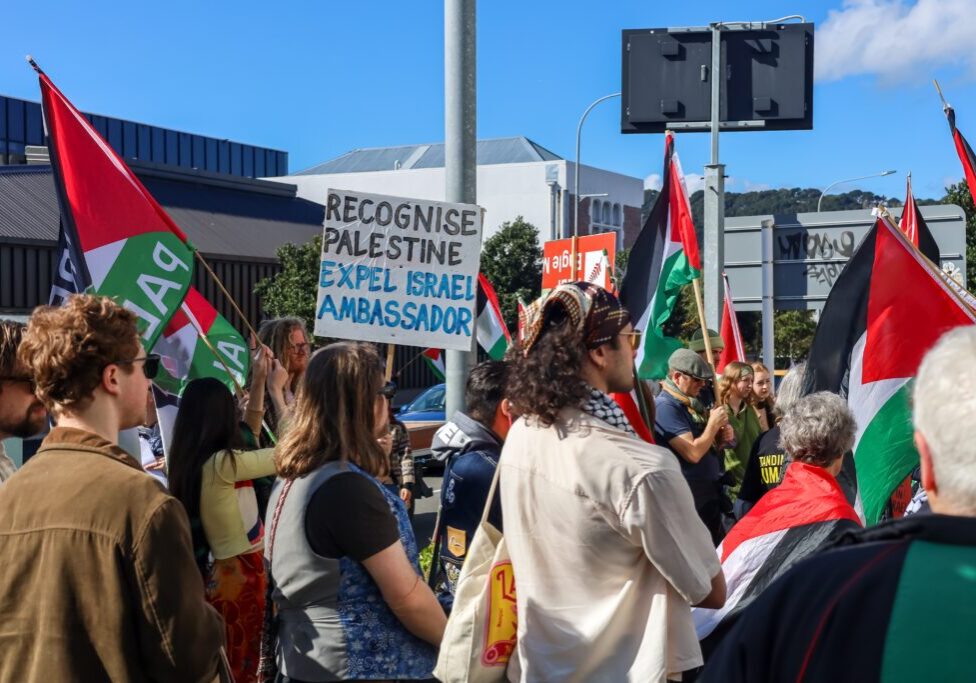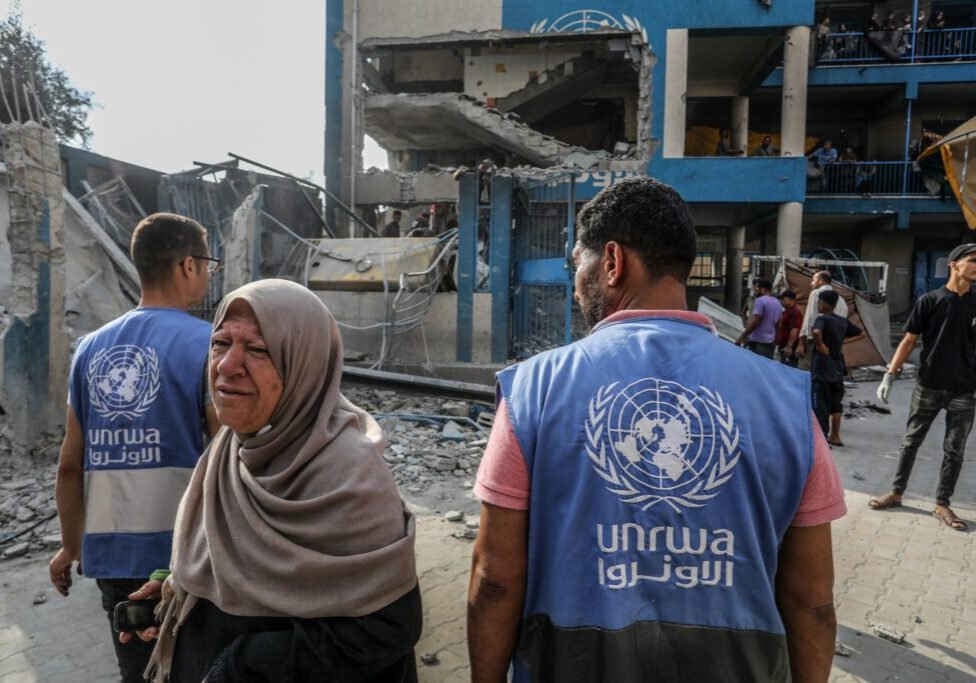Australia/Israel Review
A Refugee Revolution?
Sep 20, 2018 | Amotz Asa-El

“Our future depends not on what the gentiles will say, but on what the Jews will do,” said David Ben-Gurion in a memorable Independence Day speech in 1955.
Israelis still often think this way about the United Nation’s habitual condemnations of the Jewish state. However, the UN also has a non-verbal role in the Mideast conflict which no-one belittles, a role that has now come under fierce American attack with unpredictable repercussions.
Called the United Nations Relief and Works Agency for Palestine Refugees, or UNRWA, this significant actor in the Mideast conflict is a 69-year-old agency that runs schools, provides health services, and pays welfare cash to millions of people in the West Bank, the Gaza Strip, Lebanon, Syria and Jordan.
Founded in the aftermath of the first Arab-Israeli war, UNRWA employs – according to its own figures from 2016 – 30,627 “area staff” and 21,571 “educational staff,” and runs 700 schools that teach some half-million students.
Israel has long contended that UNRWA’s teachers preach hatred, glorify terror, and demonise the Jewish state. The agency is also attacked for discouraging proper work and self-fulfillment, through its system of welfare payments.
Most controversially, UNRWA defines as refugees, not only those personally displaced during the Arab-Israeli wars, but also all their descendants, a definition that does not exist in international law and guides no other agency dealing with rest of the world’s refugees. Consequently, the body that originally served 600,000 or so Palestinians displaced in 1948 today serves more than five million people.
Moreover, reflecting the Arab bloc’s clout within the UN system, UNRWA’s funding outweighs the budgets of the UN’s other refugee-related programs. Thus, the UN High Commissioner for Refugees (UNHCR), which helps more than 65 million “forcibly displaced people” in myriad conflict zones from Congo to Myanmar, employs 10,966 workers – less than one third of UNRWA’s workforce.
On a per-capita basis, this means that the UN’s personnel commitment for Palestinian refugees is about 30 times higher than its level for the rest of the world’s refugees, even if one accepts UNRWA’s hereditary definition of a refugee, and even if the count excludes UNRWA educational staff.
Besides this disproportionate allocation, the source of UNRWA’s funding has also been disproportionate, with US$370 million of its US$1.1 billion annual budget traditionally coming from the US.
These numbers were disagreeable to US President Donald Trump, regardless of Palestinian conduct. Now, with what he saw as diplomatic misconduct added to the brew, explosion duly ensued.
Palestinian Authority (PA) President Mahmoud Abbas lost Trump last winter, when he cursed the US President saying “may your house be destroyed” and added that the US was no longer suitable to mediate between the Palestinians and Israel.
Abbas’ statement, made in response to Trump’s announcement last December that Washington would move its embassy to Jerusalem, underscores a persistent refusal to join US-sponsored negotiations over several years.
This was the context in which US Ambassador to the UN Nikki Haley warned in an interview on Voice of America last January that the US would cut its UNRWA funding. “The Palestinians are basically saying they’re going to cut the US out of the peace process,” she said, before asserting: “We’re not going to pay to be abused.”
Haley’s subsequent warning that the US would defund UNRWA unless it was reformed has just become formal policy.
In a statement issued Aug. 31, the State Department said the US “will no longer commit further funding” to an “irredeemably flawed operation” – apart from the fact that the US refuses to “shoulder the very disproportionate share” of UNRWA finances it previously supplied.
UNRWA’s defunding is part of a broader US policy which seems intent on cornering the Palestinian leadership.
What started with a warning-shot in January, when Washington cut by half a US$130-million payment to UNRWA, was followed by a further US$200-million cut in US Aid payments for the Palestinian Authority.
The financial siege was then escalated with UNRWA’s total defunding, which then was complemented by a diplomatic blow on Sept. 10, when the US ordered the Palestine Liberation Organisation lobbying office in Washington to shut down within 30 days.
“The PLO has condemned a US peace plan they have not yet seen, and refused to engage with the US Government with respect to peace efforts,” the State Department charged, adding that the PLO “has not taken steps to advance the start of direct and meaningful negotiations with Israel.”
The US pressure triggered some harsh responses.
UNRWA’s defunding is a “flagrant assault against the Palestinian people and a defiance of UN resolutions,” said Abbas’ spokesman Nabil Abu-Rudeineh.
UNRWA’s head, Swiss diplomat Pierre Krähenbühl, blamed the US for using its humanitarian mission “as another piece of leverage” that is “political in nature and not related to UNRWA’s performance.”
While Krähenbühl’s claim is debatable, he is clearly right in portraying the American move as part of something larger than the agency he heads.
The Palestinian Authority had indeed infuriated Washington by refusing to negotiate, engaging in incitement, and providing salaries to jailed terrorists and the families of terrorists who were killed in action, all the while verbally attacking the US while spending American funds. The question is whether there is a larger American plan, and what the repercussions of the American measures might be.
Trump may or may not have a comprehensive peace plan up his sleeve, and, should one be unveiled, it might challenge Israel no less than the Palestinians. Yet for now, Israel’s willingness to negotiate has proven beneficial to relations with the US Admistration, while the Palestinian refusal to talk has proven disastrous.
Not only has Israel seen the US embassy relocated to Jerusalem, it has also won other bonuses, including National Security Advisor John Bolton’s statement on Sept. 10 that the US will punish governments and individuals who cooperate with the Palestinian effort to take Israelis to the International Criminal Court (ICC). “We will not allow the ICC, or any other organisation, to constrain Israel’s right to self-defence,” he said.
The formal Israeli Government response to the American measures has been unequivocal support.
Calling the closure of the PLO’s Washington office “the right decision,” Israeli Prime Minister Binyamin Netanyahu said Israel backed “US decisions designed to clarify to the Palestinians that the refusal to negotiate and the attempts to attack Israel in international forums will not advance peace.”
Similarly, Israel has long contended that UNRWA must be dismantled, that its functions should be transferred to the UNHCR, while the definition of a Palestinian refugee should be the same as that for any other displaced person elsewhere in the world.
However, these Israeli quests for change presumed the existing system would be dismantled and replaced in an orderly and gradual way, not abruptly demolished.
Now, faced with sudden, wholesale defunding peppered with diplomatic humiliation, there are fears the Palestinians may react violently. Some Israeli generals have reportedly been warning in security consultations of these risks, according to both Haaretz and Israeli TV reports attributed to “senior military sources.”
Following a summer of clashes along the Gaza border, during which Hamas torched Israeli wheat fields and forests and pushed thousands to storm the border fence, leading to scores of activists being shot dead by IDF snipers – the potential for escalation is high.
In Gaza, already unstable, the potential closure of schools and possible evaporation of welfare payments once the funding crunch hits come January might produce havoc. Moreover, unrest might spread to the West Bank and Jordan, since UNRWA is active there as well.
That is why the Palestinian response, besides threatening to go to the ICC, was to harness the Arab League, where popular protest is a potential major menace following the riots that unseated the leaders of Egypt, Tunisia, Libya and Yemen earlier this decade.
Then again, the Arab League foreign ministers’ meeting in Cairo on Sept. 11 saw Palestinian Foreign Minister Riyad al-Maliki failing to obtain anything more substantial than vague promises to “take the necessary steps to ensure sustained financial support” for UNRWA’s “continued operation”.
The concerns expressed by Israeli security officials were echoed by Britain, which said it would increase its own contribution to UNRWA from £28.5 million to £45.5 million, and from Germany, which said it would increase its current contribution of €81 million by an unspecified sum, as well as 102 Democratic Congressmen in the US, who in February petitioned Trump to reconsider the plan to defund UNRWA.
Pundits assume the American financial and diplomatic assault is designed to make the Palestinian Authority come to the negotiating table to discuss Trump’s “Deal of the Century,” whose details, if they exist, have yet to be made public.
Just what the unfolding American offensive will do to ageing PA President Abbas and his increasingly unpopular rule in the West Bank is anyone’s guess.
Israel, for its part, will seek the creation of an alternative to UNRWA. Jerusalem will be lobbying for such an alternative body during a meeting of UNRWA’s donor governments to be held at the end of September alongside the UN General Assembly in New York. Israel hopes this new body will keep UNRWA’s schools open while bypassing the UNRWA system and changing the educational message and tone, but retaining UN affiliation.
This lobbying effort implies that what the UN does matters to Israel, certainly more than many Israelis once assumed.
Tags: NGOs, Palestinians, United Nations






